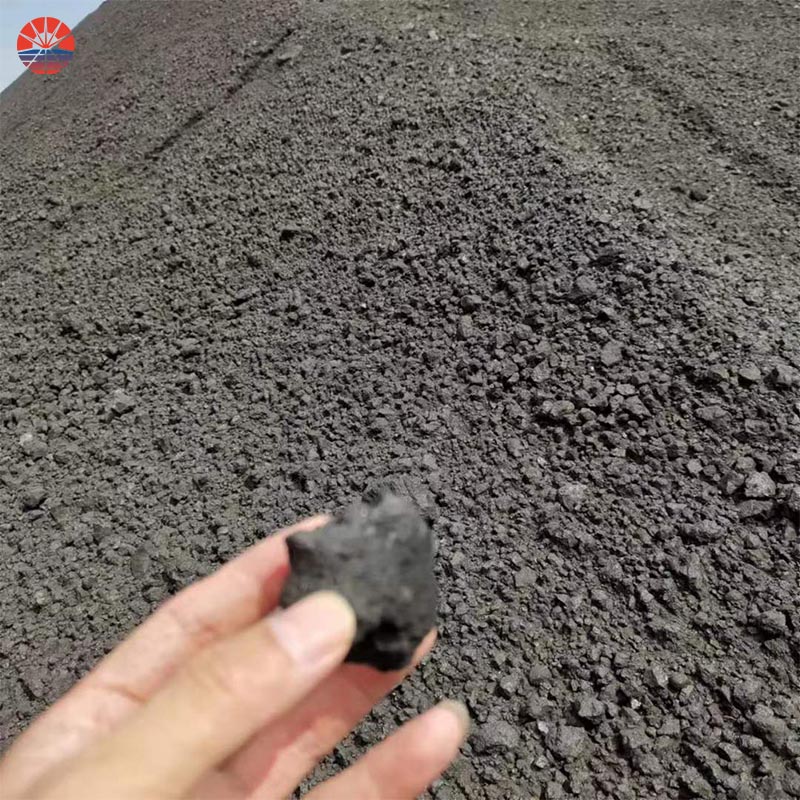The Role Of Petroleum Coke In Steel Factory
Petroleum coke (petcoke) plays a crucial role in the steel industry, primarily as a source of carbon and energy during the iron and steel production process. Here are the key roles of petroleum coke in a steel factory:
Reducing Agent: In the blast furnace process of steelmaking, iron ore (mostly iron oxide) is converted into molten iron by reacting with carbon monoxide (CO) and carbon dioxide (CO2), which act as reducing agents. Petroleum coke, with its high carbon content, serves as an excellent source of carbon for this purpose.
Carbon Additive: Petcoke is often used as a carbon additive in the steelmaking process to adjust the carbon content of the molten metal, ensuring the desired properties and composition of the final steel product.
Energy Source: The combustion of petroleum coke generates significant heat, which is utilized in various stages of steel production, such as in the blast furnace and electric arc furnace (EAF), to melt and refine the iron and steel.
Lower Sulfur Content: Compared to coal, petcoke typically contains lower sulfur content. This can be beneficial in steelmaking, as it helps reduce the formation of sulfur-related impurities in the steel.
Lower Ash Content: Petcoke generally has lower ash content than coal, reducing the formation of non-metallic impurities in the steel.
It's important to note that while petroleum coke can provide several advantages in steel production, there are also environmental and health concerns associated with its use. The combustion of petcoke emits greenhouse gases and other pollutants, contributing to air pollution and climate change. As a result, steel manufacturers are increasingly exploring cleaner and more sustainable alternatives, such as using renewable energy sources and adopting more energy-efficient technologies in steel production.
The benefits of using petroleum coke in steel factory
The use of petroleum coke (petcoke) in steel factories offers several benefits that make it an attractive option as a carbon source during the steelmaking process. Some of the advantages include:
High Carbon Content: Petcoke has a high carbon content, typically ranging from 80% to 90%, making it an excellent source of carbon for steelmaking. The high carbon content ensures efficient and effective reduction of iron ore in the blast furnace, leading to a higher yield of molten iron.
Cost-Effectiveness: Petcoke is often cheaper than other carbon sources, such as metallurgical coal, which can lead to cost savings for steel manufacturers. The availability of petcoke as a byproduct of the petroleum refining process contributes to its cost-effectiveness.
Energy Efficiency: Petcoke's high calorific value results in higher temperatures during combustion, providing the necessary heat for the smelting and melting processes in the steelmaking industry.
Lower Sulfur Content: Compared to some other carbon sources, petcoke typically has lower sulfur content. As a result, its usage can help reduce sulfur-related impurities in the steel, leading to the production of higher-quality steel products.
Enhanced Furnace Life: The use of petcoke can lead to reduced wear and tear on the blast furnace lining due to its lower reactivity and ash content compared to some alternative fuels.
Carbon Control: Steelmakers can more precisely control the carbon content in the final product by adjusting the amount of petcoke used during the steelmaking process. This allows for the production of steel with specific properties and desired carbon content.
Co-Firing Capability: Steel manufacturers can use petcoke in combination with other carbon sources, such as metallurgical coal, to achieve better control over the carbon input and tailor the steel's composition for different applications.
While petcoke offers these advantages in steel manufacturing, it's essential to consider the potential environmental and health concerns associated with its usage. Petcoke has a high carbon intensity, leading to increased carbon dioxide (CO2) emissions during combustion, which contributes to climate change. Additionally, petcoke combustion releases other pollutants, such as sulfur dioxide (SO2) and nitrogen oxides (NOx), which can impact air quality and public health.
Given these environmental challenges, the steel industry is increasingly exploring and adopting cleaner and more sustainable technologies to reduce its carbon footprint and move towards more environmentally friendly steel production methods.












